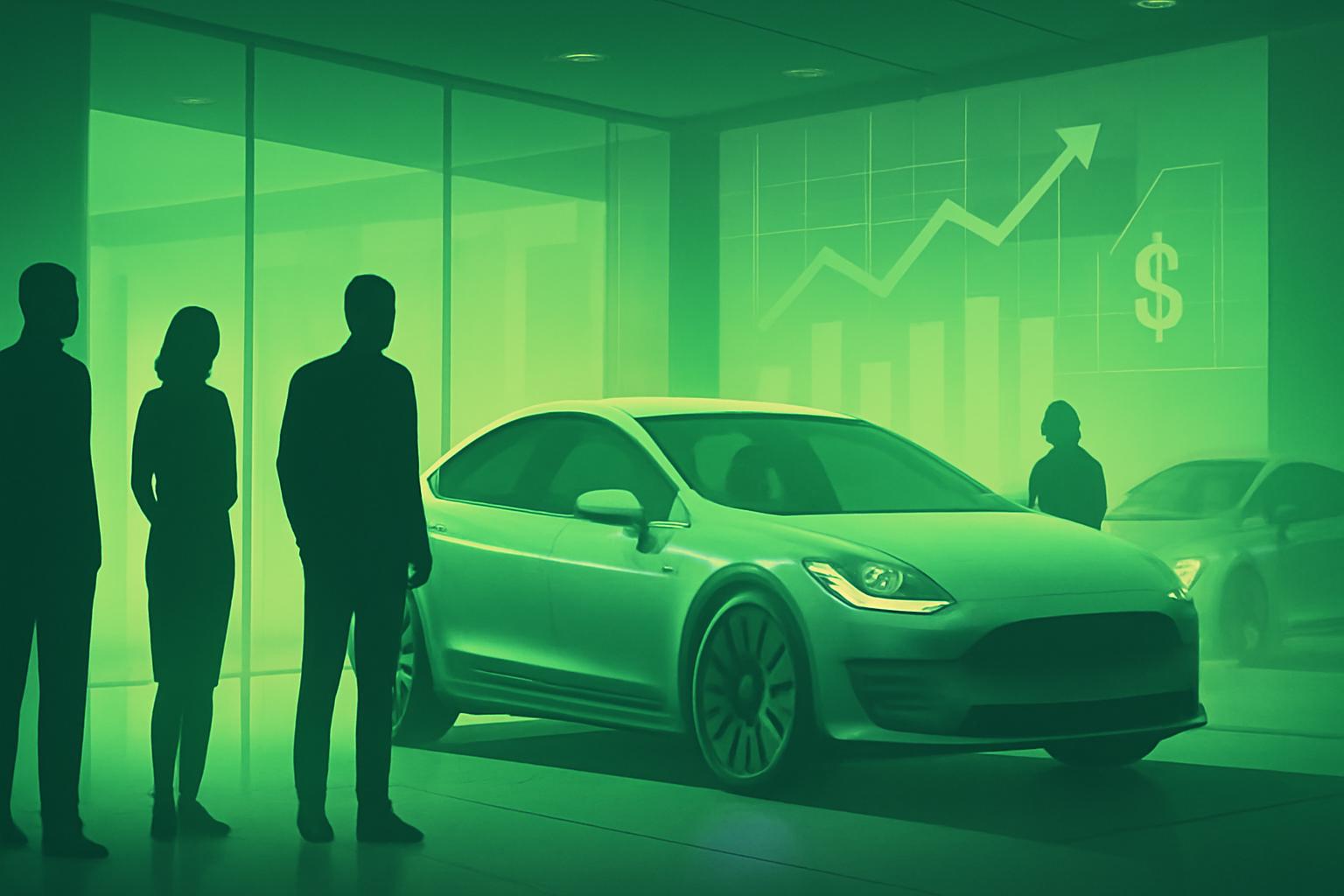Used Electric Vehicles Reach Price Parity With Gasoline Cars
The price of used electric vehicles (EVs) has declined sharply, reaching levels comparable to traditional gasoline-powered cars. According to Cox Automotive, the average price premium for used EVs over used gasoline vehicles fell to just $897 in August 2025, the narrowest gap ever recorded. In August, the average list price for used EVs was $34,704, down 1.1% from July and 2.6% compared to the previous year. This trend signals increased affordability and accessibility for mainstream consumers.Impact of Federal Tax Credit Expiration
The federal tax credit for used EVs, which offered up to $4,000 in savings, expired on September 30, 2025, after being repealed by Republicans in a major legislative package. Despite this, used EVs remain competitively priced, often costing less than their gasoline counterparts when factoring in previous incentives. Consumer demand for used EVs is rising, with nearly 41,000 used EVs sold in August 2025—a 59% increase year-over-year, according to Cox data.Lease Returns Driving Increased Used EV Supply
A key factor behind the surge in used EV availability is the volume of leased EVs reaching the end of their term. Since 2023, over 1.1 million EVs have been leased, a strategy automakers used extensively to move inventory while leveraging a leasing loophole that made tax credits more accessible to lessees. Stephanie Valdez Streaty, Director of Industry Insights at Cox Automotive, notes that these lease returns and trade-ins are flooding the used market, driving prices lower and making EVs more attainable for average buyers.“For mainstream buyers, EV affordability in the used-vehicle space is finally within reach.”
Contents
Used Electric Vehicles Reach Price Parity With Gasoline CarsImpact of Federal Tax Credit ExpirationLease Returns Driving Increased Used EV SupplyNew EV Market Faces Pricing ChallengesSustained Consumer Interest Despite Credit ExpirationTotal Cost of Ownership Remains a Key FactorState and Local Incentives Continue to Support EV AdoptionFinOracleAI — Market View
— Stephanie Valdez Streaty, Director of Industry Insights, Cox Automotive
Popular models such as the Tesla Model 3 and Model Y, Chevrolet Bolt EV, Tesla Model S, and Ford Mustang Mach-E all traded below market average prices in August, underscoring their appeal to budget-conscious consumers. For instance, the Nissan Leaf and Tesla Model 3 had average prices of $12,890 and $23,278 respectively, while the Chevrolet Bolt EV averaged $14,705.New EV Market Faces Pricing Challenges
In contrast to the used EV market, new electric vehicles remain significantly more expensive than gasoline cars. As of August 2025, the average new EV price was $57,245, a premium of nearly $9,100 over the average gasoline vehicle, excluding the now-expired $7,500 federal tax credit. Aaron Bragman, Detroit bureau chief for Cars.com, highlighted that while the tax credit spurred initial adoption, some affordable new EV options continue to be available. Examples include the 2025 Nissan Leaf priced under $30,000, as well as the Fiat 500e, Hyundai Kona Electric, and Chevrolet Equinox EV, all starting below $35,000. Bragman added, “The end of the [tax] credit doesn’t mean the end of affordable EVs. Brands like Nissan, Chevrolet, and Hyundai are rolling out lower-priced options, and used EVs are getting more attractive too, with plenty available under $25,000. Battery costs are also coming down, which will help keep prices competitive in the long run.”Sustained Consumer Interest Despite Credit Expiration
Data from J.D. Power indicates that the expiration of the federal tax credit has not dampened consumer interest in electric vehicles. Over half of new-vehicle shoppers remain likely to consider purchasing an EV within the next 12 months, maintaining steady levels throughout the past year.Total Cost of Ownership Remains a Key Factor
Industry experts emphasize that consumers should evaluate the total cost of ownership rather than just the purchase price when selecting a vehicle. This includes ongoing expenses such as maintenance, repairs, and fuel. Electric vehicles generally offer lower operating costs, potentially making them more economical over the vehicle’s lifespan despite higher upfront prices. However, factors like charging accessibility and reliance on public charging infrastructure can influence overall savings.State and Local Incentives Continue to Support EV Adoption
Although the federal tax credit has ended, numerous state and local governments, utilities, and automakers offer incentives that can significantly reduce EV purchase costs. States such as California, Colorado, Connecticut, Maine, Massachusetts, New Jersey, New York, and Rhode Island provide notable support. Al Salas, CEO of Eco Auto, an EV dealer operating in Massachusetts and Washington state, remarked, “There are a lot of state supports still for these EVs, helping to maintain affordability and encourage adoption.”FinOracleAI — Market View
The used electric vehicle market is entering a pivotal phase in 2026, driven by increased supply from lease returns and narrowing price gaps with gasoline vehicles. This dynamic is expected to enhance mainstream EV adoption despite the cessation of federal tax credits.- Opportunities: Growing affordability of used EVs expands the buyer base; continued innovation reduces battery costs; state and local incentives supplement federal support.
- Risks: New EV prices remain high, potentially limiting first-time buyers; variations in charging infrastructure may affect total ownership costs; policy shifts could alter incentive landscapes.













